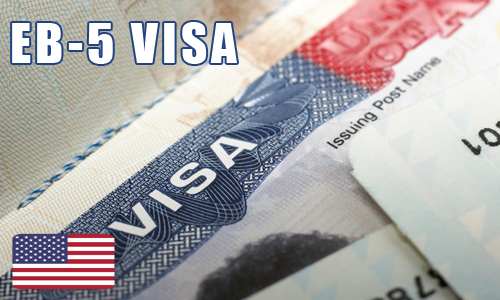Do I Need to Report my Offshore Real Estate on IRS Form 8938?
The general rule is that foreign real estate is not reportable to the IRS on Form 8938. Good news and an asset category that has been ignored by the IRS hawks trying to swoop in on as many international resources as possible.
But, read on! While the default rule is that foreign real estate is not reportable, about 95% of my clients do need to report their real estate holdings on IRS Form 8938. This is because foreign property is usually held in an offshore trust or foreign corporation and your shares in entity must be reported on Form 8938 and elsewhere.
Let’s take a step back: Form 8938 – Statement of Foreign Financial Assets was created in 2011 and must be filed by anyone with significant assets outside of the United States. If you qualify to file Form 8938, you are to report financial accounts maintained by a foreign financial institution. Examples of financial accounts include: Savings, deposit, checking, and brokerage accounts held with a bank or broker-dealer.
Also, you are to report stock or securities issued by a foreign corporation (like the one that holds your foreign real estate), trust or other entity (such as an offshore LLC), and any financial instrument or contract held for investment with an issuer or counterparty that is not a U.S. person. Examples of these assets include:
- Stock or securities issued by a foreign corporation;
- Stock or membership interests issued by a foreign limited liability company;
- A note, bond or debenture issued by a foreign person;
- An interest rate swap, currency swap, basis swap, interest rate cap, interest rate floor, commodity swap, equity swap, equity index swap, credit default swap or similar agreement with a foreign counterparty;
- An option or other derivative instrument with respect to any of these examples or with respect to any currency or commodity that is entered into with a foreign counterparty or issuer;
- A partnership interest in a foreign partnership;
- An interest in a foreign retirement plan or deferred compensation plan;
- An interest in a foreign trust or estate;
- Any interest in a foreign-issued insurance contract or annuity with a cash-surrender value.
Foreign real estate is not a foreign financial asset required to be reported on Form 8938. So, a personal residence or a rental property outside of the United States does not need to be reported on this form.
However, if the real estate is held through a foreign entity, such as a corporation, partnership, or trust, then your interest in the entity is a specified foreign financial asset that might be reportable on Form 8938. The value of the real estate held by the entity is used to determining the value of the shares to be reported on Form 8938, but the real estate itself is not separately reported on Form 8938.
All of this is to say that, if you purchase foreign real estate in your name, without an entity, you do not need to include that asset on Form 8938…but be careful, there are a number of traps for the uninitiated.
First all rental income must be reported on your personal return (Form 1040 and Schedule E), regardless of amount and regardless of whether you are required to file Form 8938. In most cases, reporting your rental property on Schedule E will create a loss, and thereby reduce your US taxes. For more information on this and taking depreciation on international real estate, check out my article US Tax Breaks for Foreign Real Estate.
Second, if you open a foreign bank account to facilitate the purchase of the property, or the receipt of rental income, and that account has more than $10,000 in it on any one day of the year, then you must report the bank account on US Treasury Form TD F 90-22.1, commonly referred to as the FBAR or Foreign Bank Account Report. I will discuss this form in more detail below.
Want to avoid filing the FBAR?
- When you purchase the property, wire funds from your US account in to escrow. Don’t allow the purchase price to go through an offshore account.
- Keep less than $10,000 in the operating account. You might need a foreign account to pay local expenses and receive rent, but you can avoid this form by maintaining a minimum balance.
What if you do not want to hold foreign real estate in your name? What if you, like most investing abroad, prefer the privacy, security and protection of a corporation?
Even if you purchase foreign real estate in a corporation, you might not need to file Form 8938. Remember that Form 8938 applies to those with “significant” assets outside of the United States. Here is how it works:
If you are living in the United States, are a married couple filing a joint tax return, and your reportable foreign assets on the last day of the year do not exceed $100,000, and are not more $150,000 on any day of the year, you don’t need to file Form 8938.
If you living in the United States, are single or married filing separate, and your reportable non-US assets on the last day of the year do not exceed $50,000, and are less than or equal to $75,000 on any day of the year, you don’t need to file Form 8938. For additional information, see the instructions to Form 8938.
If you are living abroad, are a married couple filing a joint tax return, and your reportable non-US assets on the last day of the year are not more than $400,000, and do not exceed $600,000 on any day of the year, you don’t need to file Form 8938.
If you living abroad, are single or married filing separate, and your reportable non-US assets on the last day of the year do not exceed $200,000, and are not more than $300,000 on any day of the year, you don’t need to file Form 8938. For additional information, see the instructions to Form 8938.
NOTE: Be careful when calculating the value of your foreign assets. You need to convert the value from your foreign currency to United States dollars each year. As the US dollar falls, the relative value of your assets increase. For an example, see my article Weak Dollar Crushing the Foreign Earned Income Exclusion.
Do you spend some time in the United States each year? Are you unsure if you are a US or international person for the purpose of Form 8938? The answer is simple: If you qualify for the Foreign Earned Income Exclusion (FEIE), then you are an international person. If you don’t qualify for the FEIE, you live in the US for tax purposes. Yes, even if you spend significant time abroad, you live in the US for the purpose of this form if you don’t qualify for the FEIE.
If you don’t know whether you qualify for the FEIE, or have no idea what the FEIE is, then you are probably a US person. Basically, if you are a resident of a foreign country for a full calendar year, you qualify for the FEIE. Alternatively, if you spend more than 330 days per year abroad out of any 365 day period, you qualify for the FEIE.
Note: This is a summary of a complex topic. For a detailed article on the FEIE, check out Foreign Earned Income Exclusion Basics.
If you decide to hold your foreign real estate in a company or trust, you will have filing obligations in addition to Form 8938.
The most critical offshore tax form is the FBAR. Anyone who is a signor or beneficial owner of a foreign bank or brokerage account with a value of more than $10,000 must disclose their account(s) to the U.S. Treasury.
The law imposes a civil penalty for failing to disclosing an offshore bank account or offshore credit card up to $25,000 or the greatest of 50% of the balance in the account at the time of the violation or $100,000. Criminal penalties for willful failure to file an FBAR can also apply in certain situations. Note that these penalties can be imposed for each year.
In addition to filing the Foreign Bank Account form, the offshore account must be disclosed on your personal income tax return, Form 1040, Schedule B.
Other international tax filing obligations include:
- Form 5471 – Information Return of U.S. Persons with Respect to Certain Foreign Corporations.
- A foreign corporation or limited liability company should review the default classifications in Form 8832, Entity Classification Election and decide whether to make an election to be treated as a corporation, partnership, or disregarded entity.
- Form 8858 – Information Return of U.S. Persons with Respect to Foreign Disregarded Entities.
- Form 3520 – Annual Return to Report Transactions with Foreign Trusts.
- Form 3520-A – Annual Information Return of Foreign Trust.
- Form 5472 – Information Return of a 25% Foreign-Owned U.S. Corporation.
- Form 926 – Return by a U.S. Transferor of Property to a Foreign Corporation.
Once you begin to expand your investment options beyond the United States, your IRS picture will become more complex. But, don’t let big brother bully you in to keeping your money at home. Don’t let these forms dissuade you from diversifying outside of your comfort zone or achieving significantly higher returns than are available from your local bank.
You have two options: 1) get in line and keep your money at home or 2) break from the crowd, file your forms, and make some real money.
If you choose diversify abroad, I suggest you hire a tax preparer who is experienced in international investments and forms to handle your reporting. Your local guy probably has no idea what any of this means and the cost of making a mistake is just too great for you to take on the IRS alone.











Leave a Reply
Want to join the discussion?Feel free to contribute!